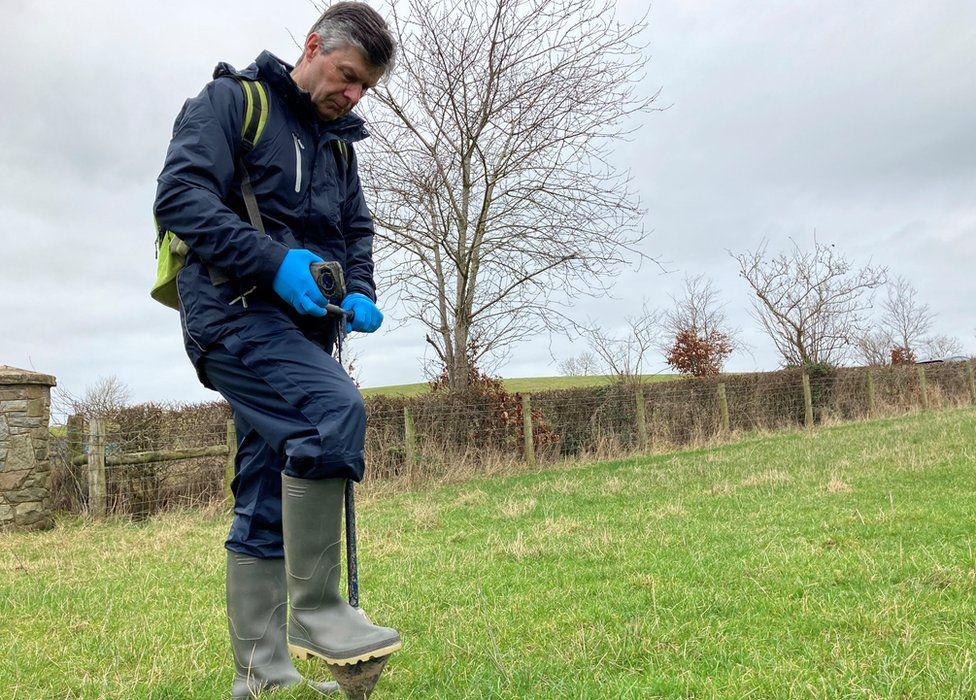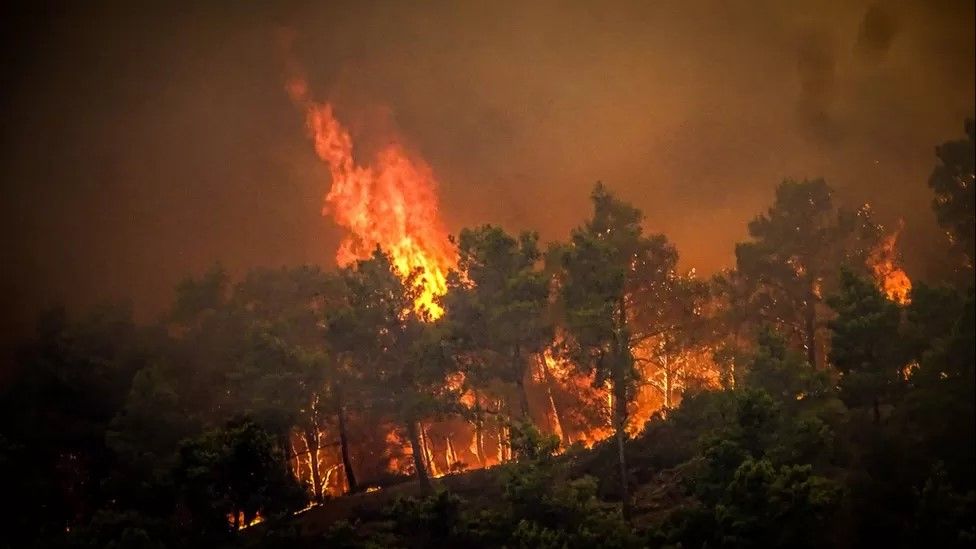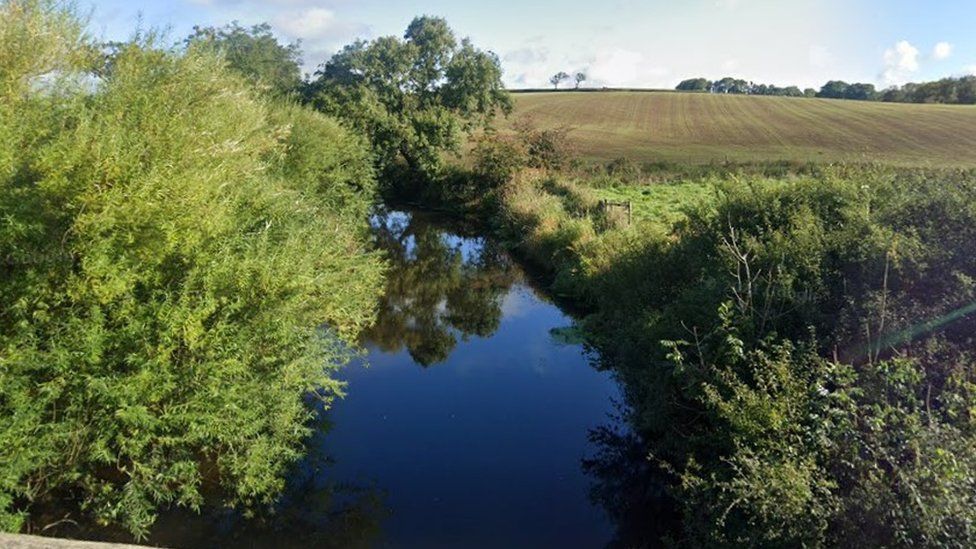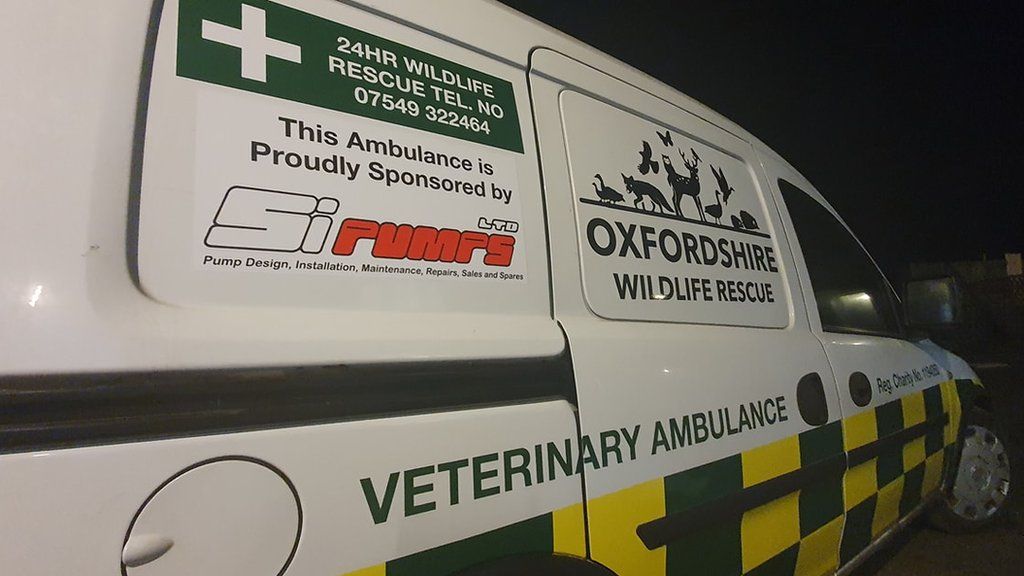"You must utilize your resources, which include your land. ".
John Mercer's family has farmed on his land close to Dromara in County Down for more than three generations.
Through the Soil Nutrient Health Scheme, his soil's secrets have now been made public.
Farmers in County Fermanagh, South Tyrone, and West Armagh can register for the second phase of the program starting on Monday.
In 2026, when the farm sustainability payment begins, it will be a requirement for eligibility.
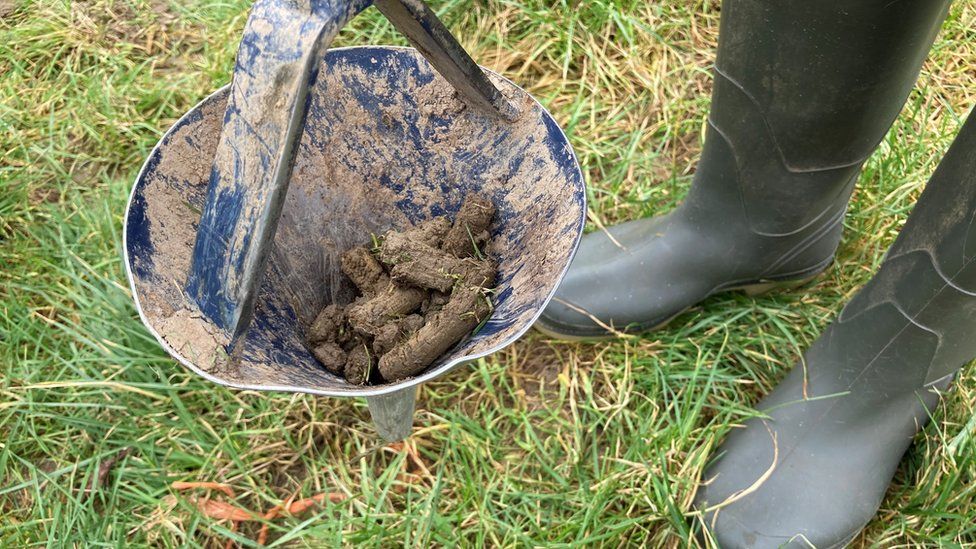
All 700,000 of Northern Ireland's fields will be analyzed for their nutrient content over the course of four years under the free program, the first of its kind in the world.
The Department of Agriculture, Environment and Rural Affairs (Daera) has provided funding for it in the amount of £45 million.
By assisting farmers in customizing their fertilizer to each field's needs, the goal is to help them save money, increase productivity, and lessen their negative environmental impact.
In zone 1, which includes County Down and north Armagh, more than 90% of farms registered for assessment.
A group of 140 samplers walked through up to 30 fields each day in the form of a wide W, lifting a few soil plugs from each field using a straightforward funnel device.
Those plugs are bagged, marked, and shipped off for examination.
Following training at the College of Agriculture, Farming and Rural Enterprise, each farmer receives a personalized report that he or she can use to better the soil quality in each field by applying fertilizer as needed.
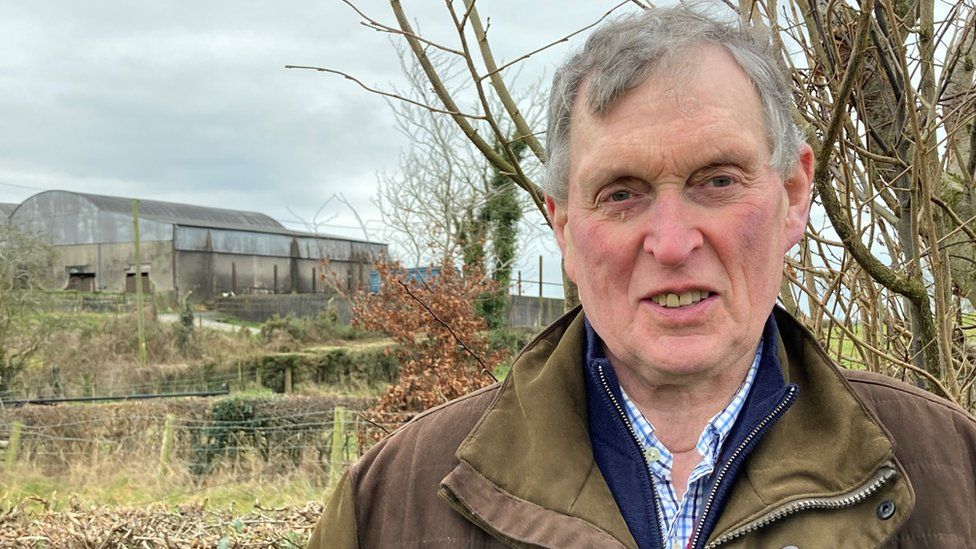
Farmer John Mercer from Dromara said, "It's one of the most helpful things possible.
"You want to increase your grass production in order to lower costs, increase farm profitability, and decrease soil nutrient waste. ".
While running a farm, John had previously taken some soil samples, but it was too time-consuming to do so thoroughly.
The work has now been completed for him by Jim Pow, a former social housing manager.
He chose to pursue training as a sampler after hearing about the program from a friend.
It had been a long, arduous walk through the countryside, he said.
"I'm given a group of fields, and I simply move from one field to the next using the GPS, collecting samples along the way, and then uploading them to the computer. ".
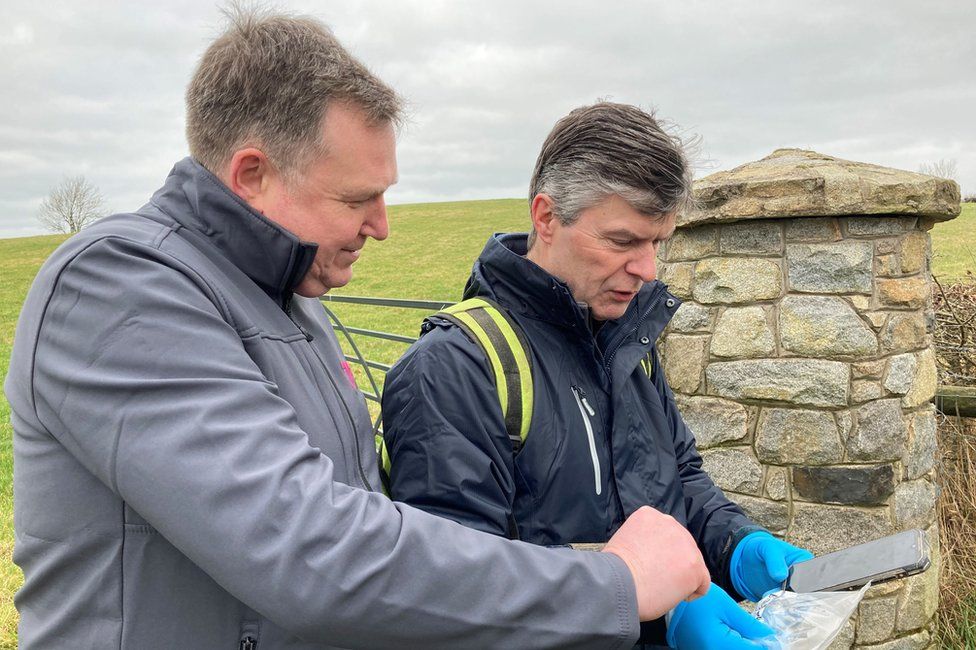
It might seem simple, but even when divided into four zones over four years, a project of this size requires extensive planning and coordination.
"The complexity in the project really revolves around the technology side of things in terms of sampling every field in Northern Ireland - 700,000 fields over a four-year period," said Donal Doyle from RPS, the company overseeing the process.
That requires a good deal of organizing and planning.
"We use cutting edge technology to do that, to make what is a complex project due to its scale as simple as possible for the samplers when they get out in the field. ".
In order to ensure that samplers are following the proper protocol for a representative sample, that technology includes live GPS tracking.
Due to the return of animals to the fields and the growth of the crops, sampling has largely stopped for the summer. Fertilizer is also applied at this time, which might skew the findings if sampling is done concurrently.
The Agri-Food and Biosciences Institute, which oversees the program, put scientist Rachel Cassidy and her colleagues to work creating it.
"The Soil Nutrient Health Scheme is an effort to level the playing field across farms in Northern Ireland by offering all farmers, over the course of the next four years, thorough soil sampling and analysis of their fields, providing them with estimates of carbon in the ground and the above-ground biomass, their hedges, and their woodland. .
"And also showing them maps of their farms' high-risk erosion areas, where you'll lose material from the surface and into water bodies, on the maps.
So it's a complete package that is also totally free. ".
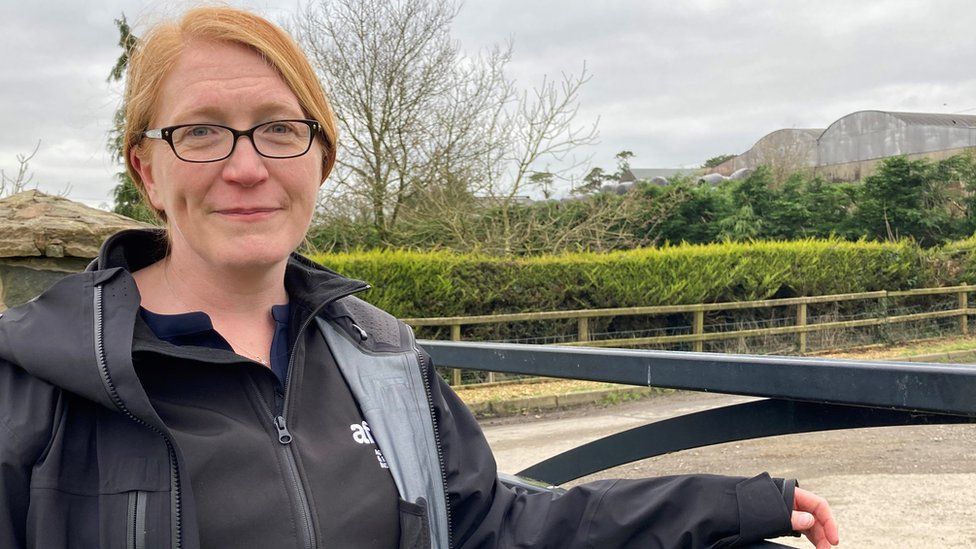
The program aims to protect the environment by lowering the risk of extra nutrients polluting nearby waterways in addition to assisting farmers with cost-saving and efficiency improvements in the face of rising feed, fertilizer, and fuel prices.
This landscape is heavily dominated by agriculture, Ms. Cassidy said.
In Northern Ireland, it has the biggest effect on the water quality. Therefore, you should try to slowly improve the water quality in Northern Ireland by learning about where to avoid spreading slurry and making sure that you have enough nutrients for your crops but not too much that you lose them. ".
One piece of advice from Mr. Mercer is offered to those who will follow him in this process.
"Go ahead and register and finish it. This is the tool you have. It's in the top inch and a half, which is unfortunate. You won't ever be successful if you don't maximize the potential of the grass.
. "

